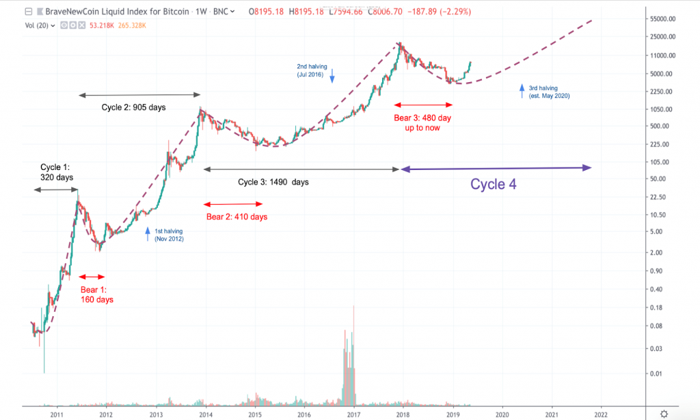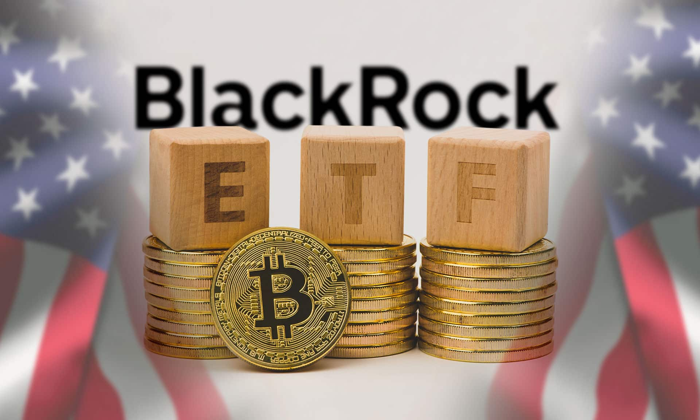Crypto regulation is emerging as a crucial aspect of the evolving financial landscape, as authorities strive to balance innovation with the need for oversight. The SEC, in particular, is undergoing a transformative period, recognizing the potential benefits of collaboration with the crypto industry instead of pursuing adversarial enforcement practices. With increasing dialogue around digital asset guidelines and the IRS’s effective voluntary disclosure programs, there is a growing sentiment that a more accessible regulatory framework could be established. This shift would not only enhance IRS compliance but also pave the way for clearer operational pathways within the crypto sector. As the demand for effective regulation intensifies, the industry’s future hinges on the ability of regulatory bodies to adapt and create a supportive environment for continued innovation.
In the realm of digital currencies and blockchain technology, the need for regulatory clarity has never been more pressing. The framework governing these assets often lacks coherence, prompting discussions around frameworks that emphasize collaboration rather than punitive measures. Drawing parallels to traditional finance, efforts for better governance in digital assets reflect a broader trend of seeking cohesive standards. By enhancing oversight through cooperation and clear guidelines, regulators can inspire greater compliance and trust among participants in this burgeoning market. As various agencies considered the implications of these approaches, the balance between driving innovation and protecting investors stands at the forefront of regulatory reform discussions.
Lessons from IRS Compliance Strategies
The IRS has long employed voluntary disclosure programs to bring individuals into compliance with tax laws. This approach has been beneficial in promoting tax compliance without the immediate threat of punitive actions, allowing taxpayers to come forward and rectify any issues without fear. By adopting a similar model for crypto regulation, the SEC could foster a more collaborative environment with the cryptocurrency industry. Such guidelines would encourage companies to comply proactively while also promoting transparency, which is essential in an industry riddled with uncertainty.
Voluntary compliance models can significantly impact how businesses perceive regulation. By creating an environment conducive to self-reporting and compliance, firms are more likely to engage with regulatory bodies rather than retreat into non-compliance. As Miles Fuller suggests, adopting such a ‘carrot rather than stick’ approach could redefine the dynamics between regulators and the crypto industry, leading to clearer pathways and guidance, ultimately benefiting the long-term stability of the market.
The Importance of Clear Digital Asset Guidelines
As the crypto landscape continues to evolve, the need for clearer digital asset guidelines becomes increasingly critical. The SEC and other regulatory bodies must prioritize creating a framework that defines what constitutes a security within the crypto sphere. This clarity will not only help companies in structuring their products effectively but also enhance investor protection by minimizing legal uncertainties. Key areas such as tax compliance and anti-money laundering measures should be at the forefront of these discussions, following the U.S. Treasury’s well-structured approach.
Furthermore, the lack of proactive guidance from the SEC often results in reactive enforcement actions, which can leave businesses vulnerable to unexpected legal challenges. The adoption of clear regulations can provide businesses with the necessary framework to operate confidently within the law, fostering innovation while ensuring compliance. By clarifying definitions and expectations surrounding digital assets, regulators can help cultivate a more robust and secure crypto industry.
Reforming SEC Regulation for the Crypto Industry
Recent indications from the SEC suggest a shift towards a less adversarial stance in its regulation of the crypto industry. This change, likely influenced by public input and heightened pressure from the DOGE initiative, presents an opportunity to reform how regulatory bodies interact with digital assets. By moving away from punitive measures and towards collaborative frameworks, the SEC can engage with industry players to develop regulations that are both effective and conducive to innovation. This cooperative approach could be instrumental in easing historical tensions between regulators and the crypto community.
As the SEC evolves, it is essential for it to establish consistent and predictable enforcement policies. This clarity, in turn, would help businesses and investors navigate the complexities of compliance with greater ease. Additionally, embracing voluntary compliance initiatives, akin to those utilized by the IRS, could alleviate concerns and uncertainty within the crypto sector. A modernized regulatory framework that promotes dialogue and collaboration can ultimately lead to a healthier, more sustainable growth trajectory for the crypto industry.
Implementing Voluntary Disclosure Programs in Crypto
The application of voluntary disclosure programs within the realm of crypto regulation could represent a paradigm shift in how compliance is approached. By allowing companies to self-report and address any issues without immediate penalties, the SEC can encourage an atmosphere of trust and cooperation rather than fear of punishment. This model mirrors successful initiatives employed by the IRS and could significantly alleviate the pressures faced by crypto companies grappling with unclear regulations.
Moreover, providing pathways for voluntary compliance may also attract more traditional investors into the crypto space, who historically have been deterred by the lack of clarity in regulations. When businesses understand their obligations clearly and feel secure in reporting their practices, it can lead to an influx of capital into the market. This enhanced investment can further drive innovation, creating a more dynamic and resilient crypto ecosystem that benefits all stakeholders involved.
The Role of Inter-Agency Cooperation
Inter-agency cooperation among the SEC, Treasury, and IRS can play a pivotal role in streamlining crypto regulation and compliance. As regulatory bodies begin to align their efforts, clarity and coherence can emerge, which are crucial for businesses navigating these complex and often overlapping regulatory landscapes. By working together, these agencies can develop comprehensive guidelines that not only address compliance needs but also foster innovation in the digital asset space.
Moreover, well-coordinated efforts can reduce the risk of conflicting regulations, which currently contribute to confusion and uncertainty within the crypto industry. When agencies share information and insights, they can create a more effective regulatory framework that supports both market growth and investor protection. Ultimately, establishing a unified front can reassure stakeholders and drive a more organized approach to crypto regulation, paving the way for long-term industry stability.
Navigating Regulatory Uncertainty in the Crypto Space
Regulatory uncertainty has historically posed significant challenges for the crypto industry, dampening innovation and growth potential. As the SEC begins to adopt a more progressive stance, there lies an opportunity for businesses to operate with greater confidence. Clear regulations that delineate compliance requirements are essential for encouraging engagement and investment from more risk-averse entities, ultimately leading to a thriving digital asset market.
Furthermore, by addressing regulatory uncertainty head-on and creating an environment conducive to compliance, regulatory bodies can help prevent the unnecessary friction that often arises between businesses and regulators. Aiming for clarity and guidance rather than a reactive enforcement approach can create a healthier regulatory landscape where companies can grow while consistently adhering to best practices.
The Potential Impact of DOGE on Crypto Regulation
The Department of Government Efficiency (DOGE) has the potential to reshape the regulatory environment for the crypto industry significantly. By seeking public input and promoting a less adversarial approach, DOGE signals a commitment to reform that could enhance how the SEC engages with digital assets. This shift could open new avenues for cooperation between regulators and the industry, which is vital as the crypto landscape continues to evolve.
As DOGE influences policies and innovations at the SEC, it is likely that these changes will resonate throughout the broader regulatory framework, prompting a re-evaluation of how various agencies collaborate on crypto regulation. This alignment could result in streamlined compliance processes and clearer definitions regarding digital assets, ultimately benefiting both businesses and investors seeking a more predictable regulatory environment.
Investor Protection in the Context of Crypto Regulation
As the conversation around crypto regulation progresses, the focus on investor protection becomes increasingly crucial. Regulators, including the SEC, must prioritize frameworks that not only drive industry growth but also safeguard the interests of investors. Establishing clear guidelines around digital assets will enable investors to make informed decisions without the risks associated with ambiguous regulations.
By fostering an environment where compliance is emphasized and facilitated through cooperation with the industry, regulators can enhance investor trust in the crypto market. This trust can lead to increased participation and engagement from traditional investors, which is essential for the overall health and sustainability of the digital asset ecosystem. Ultimately, balancing innovation with investor protection is key to ensuring that the crypto market can flourish responsibly.
Future Directions for Crypto Regulatory Reform
The future of crypto regulatory reform appears promising with the current push from entities like DOGE and the SEC’s willingness to adapt. As stakeholders continue to advocate for clearer guidelines, there is a genuine opportunity to reshape the regulatory landscape for digital assets significantly. By creating a more predictable environment that balances compliance requirements with innovation, regulators can enhance both market stability and growth.
Moving forward, it will be essential for regulators to maintain an open dialogue with industry participants to address emerging challenges and opportunities in the crypto space. This collaboration will be critical in developing robust frameworks that not only enhance compliance but also allow innovative technologies to thrive. As the regulatory environment matures, it will define how businesses operate within the crypto sphere and ultimately influence the industry’s long-term trajectory.
Frequently Asked Questions
What role does the SEC play in crypto regulation?
The SEC, or U.S. Securities and Exchange Commission, oversees the regulation of securities within the cryptocurrency industry. Their role involves determining which digital assets qualify as securities under U.S. law, enforcing compliance through litigation, and providing guidance to help businesses operate within legal frameworks.
How does IRS compliance impact cryptocurrency regulations?
IRS compliance is vital for cryptocurrency users as it ensures proper tax reporting and adherence to tax laws. The IRS has implemented voluntary disclosure programs that could serve as a model for crypto regulation, promoting compliance without immediate punitive measures, which can encourage broader participation in the crypto market.
Why are digital asset guidelines important in crypto regulation?
Digital asset guidelines provide clarity on the regulatory landscape governing cryptocurrencies. These frameworks help businesses understand their obligations regarding security classifications, tax compliance, and anti-money laundering measures, ultimately fostering a safer and more transparent crypto industry.
What are the proposed changes for SEC regulation of cryptocurrencies?
Proposed changes for SEC regulation aim to shift from reactive enforcement to proactive guidance, allowing for clearer compliance pathways. There’s also a call for policies that support innovation, such as a ‘safe harbor’ provision that could help early-stage projects operate within the regulatory framework.
How can voluntary disclosure programs enhance crypto regulation?
Voluntary disclosure programs encourage crypto businesses and individuals to report their activities without fear of punitive actions. This approach can lead to better compliance with SEC regulations and IRS standards, supporting a healthier relationship between regulators and the crypto industry.
What impact does the Department of Government Efficiency (DOGE) have on crypto regulation?
The Department of Government Efficiency (DOGE) is influencing the direction of SEC regulation by seeking public input on cryptocurrency oversight. Their efforts indicate a potential shift towards a more cooperative regulatory environment, which could lead to clearer and more consistent guidelines for the crypto industry.
How can SEC collaboration with the IRS improve crypto regulation?
Collaboration between the SEC and IRS can lead to streamlined compliance for digital asset firms, reducing regulatory conflicts. By harmonizing their guidelines, these agencies can provide more certainty to businesses regarding their obligations, facilitating growth in the crypto market.
What challenges do companies face under current SEC enforcement practices?
Companies in the crypto industry face challenges due to the SEC’s reactive enforcement practices, which often lead to legal uncertainties and unexpected compliance risks. Many firms have spent substantial resources on litigation to clarify their regulatory status, indicating a need for more proactive guidance from the SEC.
What is the significance of defining securities in the cryptocurrency sector?
Clearly defining what constitutes a security in the cryptocurrency sector is crucial. It allows businesses to structure their offerings appropriately, provides better investor protection, and enhances compliance efforts across the industry. This clarity can attract more participants into the crypto market.
What future trends are expected in crypto regulation under the current administration?
Future trends in crypto regulation under the current administration suggest a move towards clearer guidelines, possibly inspired by frameworks from the IRS and Treasury. Increased engagement with the industry and public input may lead to reforms that prioritize compliance and foster innovation in the digital asset ecosystem.
| Key Point | Description |
|---|---|
| IRS Model of Compliance | The IRS encourages voluntary disclosure over punitive actions, a model that could benefit crypto regulation. |
| SEC’s Recent Changes | The SEC is taking a less adversarial approach following a request for public input, indicating potential reform and collaboration with the crypto industry. |
| Proposed Legal Reimbursements | Coinbase’s proposal suggests the SEC should cover legal expenses for companies contesting enforcement actions, supporting a fairer regulatory framework. |
| Need for Proactive Guidance | Companies are often unprepared for enforcement actions due to the SEC’s lack of proactive guidance, needing clearer compliance pathways. |
| Balancing Innovation and Compliance | A ‘safe harbor’ provision could encourage innovation while ensuring compliance, akin to IRS’s transitional relief approach. |
| Inter-Agency Cooperation | Coordination between SEC, Treasury, and IRS is essential to streamline regulations and avoid conflicts in the crypto space. |
Summary
Crypto regulation has the potential to transform significantly as the SEC begins to adopt less adversarial and more cooperative strategies inspired by the IRS. The recent changes, indicated by the Department of Government Efficiency’s push for public input, suggest a shift towards clear compliance pathways and proactive guidance, essential for industry growth. Embracing models of voluntary compliance and providing clearer frameworks could foster an innovative landscape in the cryptocurrency sector while ensuring that investor protections remain strong. As discussions evolve, the integration of cooperative approaches from various regulatory bodies may yield a more favorable environment for businesses and consumers alike.
Crypto regulation is becoming increasingly relevant as the digital asset landscape evolves and attracts a wider audience. Recent shifts in the approach of the U.S. Securities and Exchange Commission (SEC) highlight a significant transition towards a more collaborative framework than the traditionally adversarial stance. By utilizing strategies similar to IRS compliance programs, regulators can foster an environment that encourages crypto innovation while maintaining essential protections for investors. Clear digital asset guidelines can help unify the rapidly growing crypto industry by offering clarity and reducing legal uncertainties for companies. With this shift, embracing voluntary disclosure programs could streamline the regulatory process, ensuring compliance without stifling the pioneering spirit that defines the world of cryptocurrency.
The governance of digital currencies and assets is poised for transformation as regulatory bodies reevaluate their methodologies. In an era where financial technology is continuously disrupting traditional systems, the need for efficient oversight is paramount. This evolution in the oversight of cryptocurrencies revolves around a proactive rather than reactive paradigm, mirroring successful practices in IRS compliance. By establishing clear regulatory parameters, authorities can provide a solid foundation that permits innovation within the crypto sphere while safeguarding public interest. As new frameworks take shape, the balance between encouragement and enforcement will be crucial in shaping the future of digital asset management.















